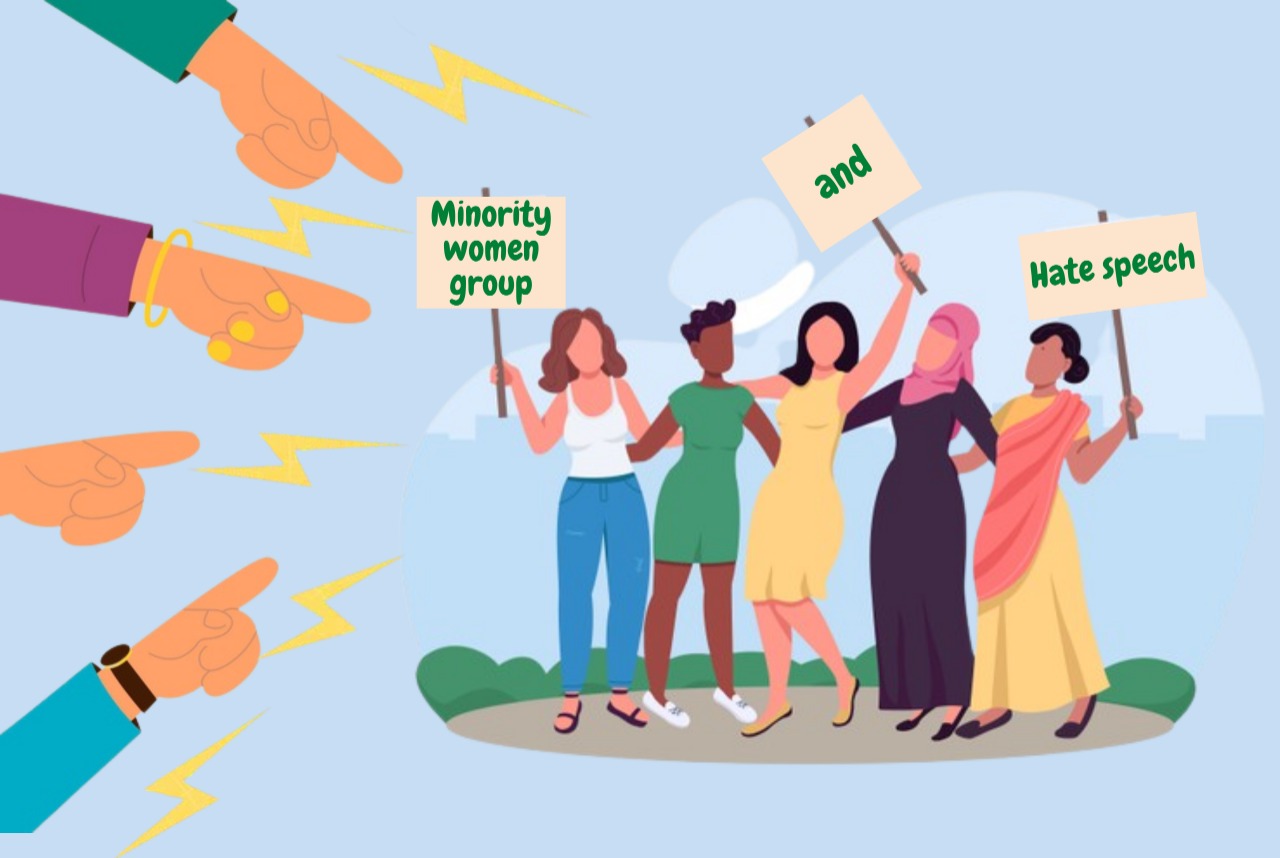

United Nations strategy and plan of action on hate speech defines hate speech as “any kind of communication in speech, writing or behaviour, that attacks or uses pejorative or discriminatory language concerning a person or a group based on who they are, in other words, based on their religion, ethnicity, nationality, race, colour, descent, gender or another identity factor”. Generally hate speech includes slurs and statements that promote stereotypes and violence against a group in the society. Hate speech against women generally occurs as a result of gender stereotypes that limit the capacity of women and girls and results in gender inequality. Hate speech against women has almost become a developing trend all over the world which affects all females of all positions in society. Even though women are not classified as a minority group, their status as a subordinate group has led many social scientists to analyze them as such. Women face social inequities in most communities, even though their legal rights and position vary greatly between countries.
The Convention on the Elimination of All Forms of Discrimination Against Women(CEDAW) was adopted by the United Nations General Assembly on 18th December 1979 as a measure to eliminate discrimination against women. It also promotes the rights of women and also monitors the situation of women in member countries of the United Nations around the world.
The convention specifically states that any type of discrimination is not permitted against women. Hate speech which is a form of discrimination against women is not tolerated according to the convention. The 30 articles of the convention are divided into 6 parts and each part consists of specific topics that are related to eliminating discrimination against women. The convention declares the right of women to vote and stand for elections. But in many countries, female representation in politics is considerably lower than male representation. Middle eastern countries rarely have female representatives in their political systems. Asian countries also have less representation of women in politics. As an example, in Sri Lanka, although women representatives are present they are not viewed at the same level as male representatives.
Articles 10-14 of CEDAW specifically is focused on protecting the economic and social rights of women regarding employment, education and health. It is a commonly known fact that almost in all of the countries of the world women have to face many difficulties in employment and are not given equal chances as male and they are labelled as the weaker group. Hate speech on women is very common in working places and is most of the time discriminated against.The concept of ‘glass ceiling’ is a great example which shows the discrimination women have to undergo in workplaces. Women engaging in further higher studies is always a topic of discussion to society. Many societies believe that having a limited education is enough for girls and that they should remain in the house and take care of the household and children.
Women have become tools in raising public debates concerning their standards and positions in society which decreases the progress in making the public aware of the importance of protecting equality and dignity for all human beings which is specifically mentioned in the convention. Hate speech on women minority groups is a long-lasting issue that should be tackled effectively with the use of legal and institutional mechanisms which will take the necessary actions for the ones who are responsible. The mere existence of The Convention on Elimination of All forms of discrimination Against Women is not enough to eradicate hate speech on women. We all should actively be a part to stand up and take necessary actions for hate speech on women minority groups and ensure the continued protection of the convention.
poojanee
Jul 03, 2021
0